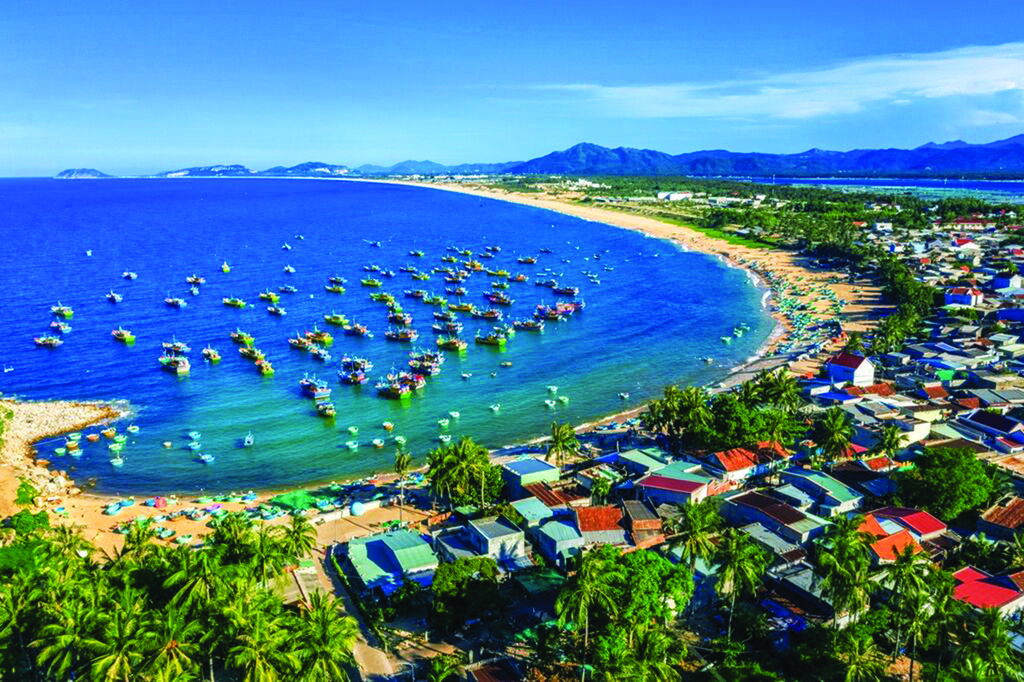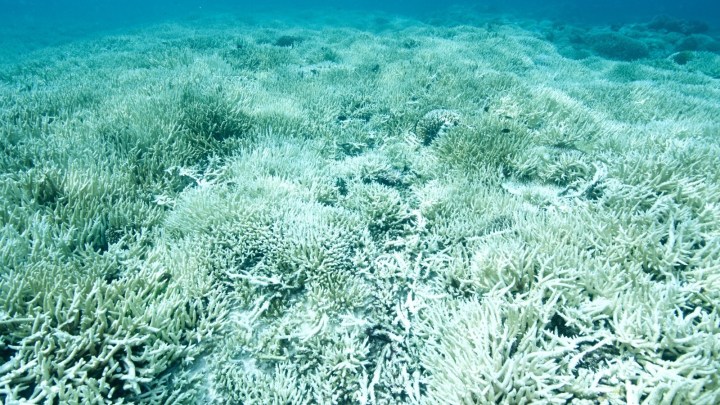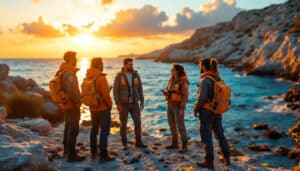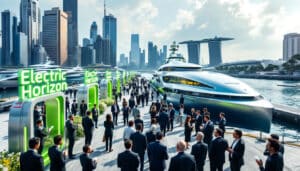The preservation of marine resources has become an imperative in the face of growing environmental and economic challenges. The oceans, which harbor essential biodiversity and contribute to the regulation of our climate, are today threatened by overfishing, pollution and climate change. Ensuring sustainable marine resources for future generations requires an integrated approach that combines ecosystem protection, responsible fishing practices and technological innovations. By raising awareness and encouraging sustainable initiatives, we can work together towards a future where the seas continue to nourish and support life on our planet.
| Actions | Description |
| Establish marine protected areas | Create areas where fishing and exploitation activities are limited to preserve ecosystems. |
| Fisheries regulation | Impose fishing quotas and seasons to prevent overfishing and allow stocks to regenerate. |
| Sustainable fishing practices | Encourage fishing methods that minimize damage to marine ecosystems. |
| Scientific data collection | Invest in research to better understand marine ecosystems and assess the impact of human activities. |
| Awareness and education | Educate communities on the importance of marine conservation and involve them in protection actions. |
Table of Contents
ToggleActions for Sustainable Marine Resources
- Establish marine protected areas
- Promoting sustainable fishing
- Reduce marine pollution
- Encouraging responsible aquaculture
- Raise awareness of the importance of marine ecosystems
- Use selective fishing technologies
- Regulate extractive activities
- Promote scientific research on the oceans
Strategies for sustainable marine resources

To preserve the marine resources and ensure their sustainability for future generations, it is crucial to adopt a coordinated and integrated approach. Several strategies can be implemented to ensure the protection of marine ecosystems while meeting current economic needs.
One of the key strategies is to promote sustainable fishing practices. This includes the establishment of fishing quotas to avoid overexploitation stocks, as well as the promotion of selective fishing methods reducing bycatch and minimizing the impact on marine habitats. In addition, supporting alternative development projects for fishing communities can help reduce pressure on fishing resources.
Technological innovation also plays an essential role. The adoption of sustainable technological solutions in the maritime sector, such as more selective fishing equipment or advanced navigation systems, can significantly reduce the environmental impact of marine activities. In addition, the development of ethical aquaculture represents a sustainable alternative to wild fishing, making it possible to produce marine resources in a controlled and environmentally friendly manner.
Maritime spatial planning is another essential dimension of sustainable management of marine resources. Through the marine spatial planning, it is possible to regulate the different uses (fishing, maritime transport, tourism, exploitation of marine energy) and to ensure harmonious cohabitation between them, while respecting protected and sensitive areas. Establishing marine reserves and conservation areas can help preserve critical biodiversity and provide refuges for threatened species.
The fight against marine pollution is also crucial. Reducing plastics and chemical waste dumped into the oceans can greatly contribute to the health of marine ecosystems. Initiatives to improve coastal waste management and beach cleaning programs are essential to limit the damage inflicted on marine wildlife.
Finally, education and public awareness of the importance of the oceans play a central role. Encourage the maritime ecological tourism and promoting environmentally friendly practices among visitors can help reduce human impact on marine environments. Communication campaigns and educational events can raise awareness among local communities and encourage them to adopt more sustainable behaviors.
Responsible fishing practices
Ensuring sustainable marine resources is essential to preserving ocean ecosystems for future generations. One way to achieve this is to promote responsible fishing practices. Using selective fishing methods, such as gillnets that limit bycatch, helps reduce the impact on non-target species. In addition, the establishment of strict fishing quotas helps prevent overfishing and allow fish populations to recover.
The development ofsustainable aquaculture also plays a crucial role. By adopting environmentally friendly techniques, such as polyculture and the use of diets based on sustainable ingredients, aquaculture can provide a source of protein while minimizing its ecological footprint. To learn more about the sustainable management and exploitation of maritime resources, see current initiatives for a sustainable management of maritime resources.
The preservation of marine habitats is also fundamental. The creation of marine protected areas (MPZs) makes it possible to safeguard critical areas for marine biodiversity. These spaces provide refuge for endangered species and play a key role in the regeneration of fish stocks. Additionally, restoring degraded habitats, such as coral reefs and seagrass beds, helps keep ecosystems healthy.
Encouraging technological innovation can also provide sustainable solutions. Advances such as smart fish aggregating devices (FADs) reduce the capture of juveniles and non-target species. Likewise, satellite monitoring technologies make it possible to monitor fishing activities in real time, ensuring better management of resources. The challenge and opportunity presented by these advances are detailed in the framework of sustainability for business.
Adopting these strategies is essential to ensure a future where marine resources are preserved and human communities can continue to benefit from them in a sustainable manner. These actions require close collaboration between governments, businesses and citizens so that together we can protect the oceans.
Protection of marine ecosystems
To guarantee sustainable marine resources, adopting holistic and well-defined strategies is essential. The establishment of responsible fishing policies, the regulation of quotas and the fight against illegal fishing are key measures to maintain ecological balance.
The development of innovative technologies plays a crucial role. Solutions such as drone surveillance and artificial intelligence make it possible to better control maritime activities and protect critical habitats. These innovations also promote supply chain transparency and stakeholder engagement.
The promotion ofethical aquaculture is another important strategy. By encouraging environmentally friendly farming practices, it is possible to reduce pressure on wild fish stocks and ensure sustainable production.
The development ofblue economy constitutes a strategic priority for several nations. National maritime spatial planning makes it possible to optimize the use of resources, while preserving marine ecosystems. With this in mind, Morocco highlights the importance of the blue economy and green hydrogen as pillars of a sustainable development strategy.
The protection of marine ecosystems also involves the creation of marine protected zones (MPZ). These areas serve as refuges for biodiversity, allowing species to reproduce and grow safely.
To fight against marine pollution, it is essential to promote local and international initiatives aimed at reducing plastic waste and other harmful substances. Awareness campaigns and partnerships with private companies can help establish responsible practices.
Finally, the importance of maritime ecological tourism should not be underestimated. By encouraging sustainable tourism activities, it is possible to raise public awareness of the need to preserve the oceans while promoting economic development.

A: The main threats include overfishing, pollution, climate change and the destruction of marine habitats.
A: Overfishing leads to an imbalance in species populations, which can disrupt the entire marine ecosystem.
A: Stricter regulations on industrial waste, promotion of recycling and public awareness can help reduce marine pollution.
A: Protecting marine habitats is essential to maintaining biodiversity, supporting sustainable fishing and preserving ecosystem services.
A: Local initiatives can promote more responsible management of fisheries and encourage sustainable practices adapted to the specificities of their region.
A: Technology can help monitor fish populations, improve fishing practices and reduce the environmental impact of human activities.
A: By choosing certified sustainable seafood, consumers can put pressure on the industry to adopt more responsible practices.
A: Treaties like the United Nations Convention on the Law of the Sea (UNCLOS) aim to regulate the use of marine resources and protect marine spaces.









